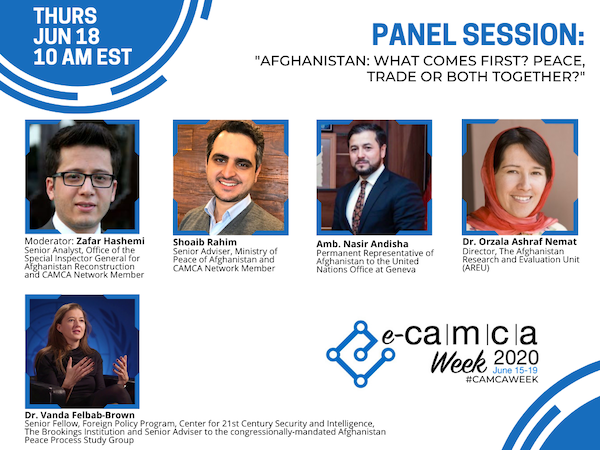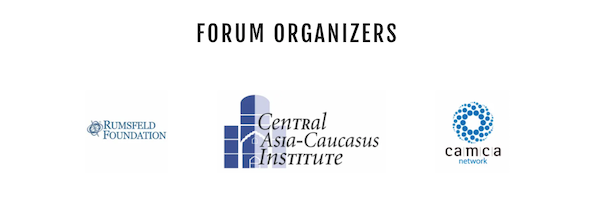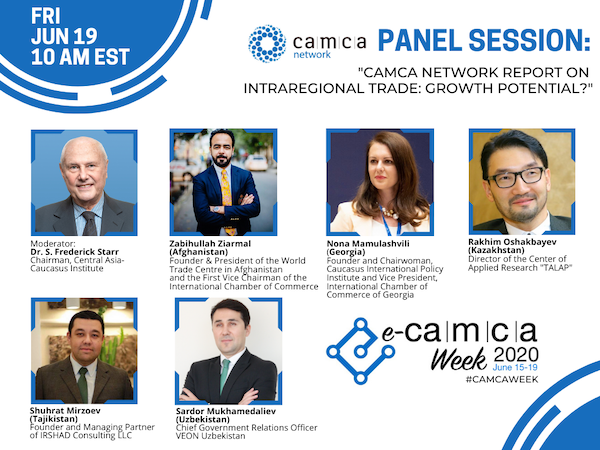[VIDEO POSTED] CACI Online Forum: Kazakhstan in International Mediation
Kazakhstan in International Mediation
The Central Asia-Caucasus Institute, in cooperation with the Embassy of Kazakhstan to the United States, would like to invite you to a CACI online Forum on Kazakhstan’s role in international mediation. The event will be held at 10 AM on December 4, 2020, and will mark the publication of a new Silk Road Paper on the topic. In recent years, Kazakhstan has taken on the role of a mediator in several international disputes, ranging from the Iranian nuclear issue and the Ukraine conflict to Turkish-Russian relations and the Syrian civil war. The study, authored by Svante E. Cornell and S. Frederick Starr, analyzes the reasons for Kazakhstan’s involvement in international mediation and the implications thereof.
Moderator:
- Mamuka Tsereteli, Senior Fellow, Central Asia-Caucasus Institute
Speakers:
- S. Frederick Starr, Chairman, Central Asia-Caucasus Institute
- Amb. Erzhan Kazykhanov, Ambassador of Kazakhstan to the United States
- Svante E. Cornell, Director, Central Asia-Caucasus Institute
- David A. Merkel, Associate Fellow for Geo-Economics and Strategy, International Institute for Strategic Studies
When: Friday, December 4th, 2020, 10-11:00 AM EST
The event is now available on Youtube.
[Video Posted] CACI Online Forum: Kazakhstan Beyond Headlines: One Year of Mr. Tokayev's Presidency
Kazakhstan Beyond Headlines: One Year of Mr. Tokayev's Presidency
Speakers:
H.E. Yerzhan Ashikbayev, Deputy Minister of Foreign Affairs of Kazakhstan
Ambassador Bolat Nurgaliyev, Deputy Chairman of Foreign Policy Research Institute
Introduction by:
S. Frederick Starr, Chairman, Central Asia-Caucasus Institute at AFPC
Moderator:
Svante Cornell, Director, Central Asia-Caucasus Institute
When: Wednesday, July 8, 2020 at 10am EDT
The event was live-streamed on our Facebook page and is now available on Youtube.
CACI and the Rumsfeld Foundation hosted e-CAMCA Week 2020
In lieu of our in-person annual gathering, the CAMCA Regional Forum organizers are hosting a virtual e-CAMCA Week.
The June 2020 CAMCA Forum, to be held in Almaty, Kazakhstan, was postponed until June 2021. In its place, CACI and the Rumsfeld Foundation organized the e-CAMCA week of online events and publication. Find recordings of the e-CAMCA Week virtual events held over June 15th-19th at the CAMCA Forum YouTube Channel, as well a variety of original #CAMCAweek publications and resources for our CAMCA Forum community at www.camcaforum.org,.


E-CAMCA WEEK PUBLICATIONS
Welcome Letter
Letter from Secretary Donald Rumsfeld
e-CAMCA Week 2020 participants
Meet CAMCA Entrepreneurs
View features of some successful regional entrepreneurs from our CAMCA Network
"Caucasus & Central Asia Post COVID-19" Series- Volume I
Digital Transformation in the CAMCA Region
Post COVID-19: Challeges & Opportunities for the Region

CACI releases Silk Road Papers on State and Religion in Kyrgyzstan and Turkmenistan
Religion and the Secular State in Central Asia: The Examples of Kyrgyzstan and Turkmenistan

This event marked the publication of two Silk Road Papers on the state-religion relationships in Central Asia, a study of Kyrgyzstan by Johan Engvall and one on Turkmenistan by Victoria Clement. This forms part of the ongoing research effort on secular governance, religion and politics at the Central Asia-Caucasus Institute & Silk Road Studies Program Joint Center, and follows the publication of studies on Azerbaijan, Kazakhstan and Uzbekistan.
Johan Engvall’s study of Kyrgyzstan’s experience is timely given that country’s experience, starting with a more permissive atmosphere that subsequently aligned itself with policies in the rest of the region. Victoria Clement’s study of Turkmenistan is the first treatment of the subject to appear in print, and sheds light on the similarities of Turkmenistan’s approach with the rest of Central Asia as well as its specificities.
Speakers:
Victoria Clement, Eurasia Regional Analyst, Center For Advanced Operational Culture Learning, Marine Corps University
Johan Engvall, Senior Research Fellow, Foreign Policy Research Institute
Moderator: Svante E. Cornell, Director, Central Asia-Caucasus Institute at AFPC
When: Monday, June 15, 2020 at 10am EDT
The Event was live-streamed on our Facebook page and is available on our YouTube page and here.
e-CAMCA Week 2020
In lieu of our in-person annual gathering, the CAMCA Regional Forum organizers are hosting a virtual e-CAMCA Week.
From June 15th-19th we will be hosting a daily live speaker session or panel, as well as releasing a variety of original content and helpful resources, for our CAMCA Forum community. We’ve pulled together a terrific collection of experts from across sectors, including members of the CAMCA Network, that will be delivering the latest on what you need to know about the region during the COVID-19 crisis and beyond.
Live video events will take place at 10 AM EST daily from June 16th-19th .
TUNE IN HERE to our Facebook page for live video events (full agenda below) and
SUBSCRIBE BELOW to receive the aforementioned release
VIEW THE FULL AGENDA DETAILS HERE


E-CAMCA WEEK PUBLICATIONS
Welcome Letter
Letter from Secretary Donald Rumsfeld
e-CAMCA Week 2020 participants
Meet CAMCA Entrepreneurs
View features of some successful regional entrepreneurs from our CAMCA Network
"Caucasus & Central Asia Post COVID-19" Series- Volume I
Digital Transformation in the CAMCA Region
Post COVID-19: Challeges & Opportunities for the Region




